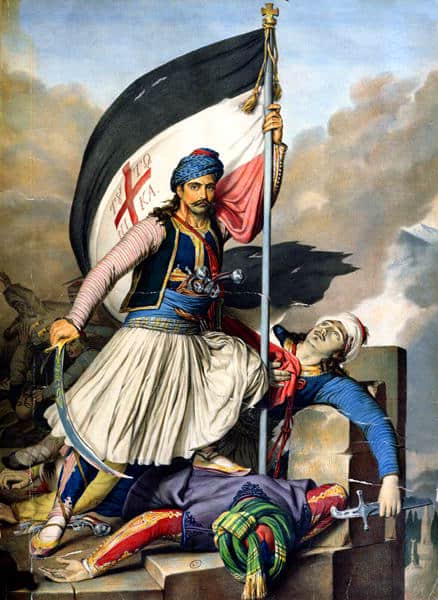Salona, Greece – April 10, 1821 – Easter Sunday witnessed a momentous occasion in the Greek War of Independence: the liberation of Salona (modern-day Amfissa). This marked the first significant victory for the Greeks, igniting hope and setting the stage for further triumphs.

The siege of Salona began swiftly on March 27, 1821, spearheaded by the formidable chieftain Panourgias. Before embarking on the campaign, Panourgias received a blessing from Bishop Isaiah of Salona, a remarkable figure who actively participated in battles and ultimately sacrificed himself for the cause.
The Greeks pressed the siege relentlessly. Faced with dwindling supplies, particularly water, the Ottoman garrison of approximately 5,000 Turks and Albanians was forced to surrender after a mere 13 days on Easter Sunday, April 10th.
A Promise Kept, a Victory Marred:
Panourgias, demonstrating a sense of honour, promised safe passage to the Ottomans in exchange for their surrender of weapons. This promise, unlike the brutal events that followed in some other battles, was reportedly kept.
However, as the Ottomans exited the citadel, a celebratory fervour turned violent. In a tragic turn of events, some Greek fighters, fueled by religious zeal and vengeance, reportedly inflicted heavy casualties upon the surrendering Ottomans.
